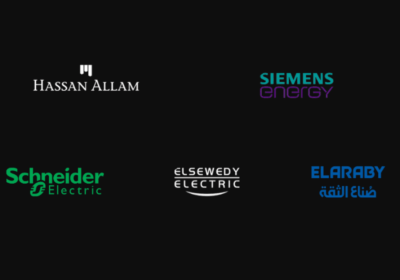The Central Bank of Egypt (CBE) announced on January 3, that it will dedicate EGP 15 billion to ease the country’s residents into converting their vehicles to natural gas, according to Al Ahram. What quickly followed was news about President Sisi’s inauguration of Go Green; the country’s first expo on the matter.
In 2019/20, the Egyptian Petroleum Minister told us that 42,000 cars in Egypt were converted to run on both natural gas and traditional gasoline (also known as bi-fuel vehicles), according to Egypt Today; a number 25% higher than the preceding year. The government is set to motivate the conversion of 1.3 million private cars in the coming years.
On the occasion of this news, here are a couple of key things we think you should know, put briefly to make comprehending what’s happening easier.
Egypt’s Natural Gas Potential Is Big
Since Italy’s ENI discovered the massive Zohr field (an offshore natural gas field located in the Egyptian sector of the Mediterranean Sea that’s home to 30 trillion cubic feet of natural gas) back in 2015, and Egypt has been striving to become a regional energy hub. In late 2018, it became a net exporter instead of a net importer, according to Reuters.
The country’s rapidly growing natural gas supplies continue to look promising. The Petroleum Minister, Tarek El Molla, asserted in late 2020 that the country has reached its highest rates of natural gas production and has become self-sufficient, according to Egypt Independent.
What CBE’s EGP 15 BN and Go Green Are For
CBE announced pumping EGP 15 billion to ease the transition of vehicles from gasoline (which is sometimes dubbed as petrol) to natural gas.
The sum of money will allow banks in Egypt to incentivize vehicle owners looking to transform their car into a natural gas-fed machine with loans at a 3% interest rate that is repayable over 7 to 10 years. Apart from the recently introduced financial incentive, a further long-term investment lies ahead.
A statement by President Sisi last year stated that the country’s government will require new cars to fuelled by natural gas in order to acquire a license while emphasizing that the transition could cut middle-income families’ fuel bills by half!
The expo his excellency inaugurated today, on January 4, is committed to exhibiting technologies used in converting vehicles to run on natural gas instead of, or along with gasoline.
Would Compressed Natural Gas (CNG) Hurt Cars?
If all infrastructure challenges, like a proper transportation system for natural gas and enough natural gas fuelling stations around the country, were met by the government, the consumer would still face some obstacles to taking the decision to convert. Would it hurt my engine?
Much like the novel coronavirus vaccines out there now, there are many conceptions afloat on how converting vehicles to natural gas could harm them, especially their engine. But that’s not true. According to the automotive industry’s experts around the world, and with the exception of cars that are quite old, the conversion shouldn’t harm your car at all. Click here to read an expert’s opinion on the myths surrounding the alternative fuel.
Would the Move Towards Natural Gas for Cars Be Better for the Environment?
The short answer is, yes, relatively. But although it is much cleaner than gasoline and other fossil fuels, its extraction, transportation, and combustion do produce harmful emissions.
Taking only tailpipe emissions (those released into the air after fuel combustion in a vehicle’s engine) into consideration, natural gas emits 15% to 20% less heat-trapping gases (that contribute to global heating) than gasoline when burned in one of today’s typical vehicles.
Other damages it might cause to the environment depend on the methods used in its extraction, transportation, and other factors. We recommend you look it up, read further. You could begin your further reading by clicking here and here.
Would you convert your car so that it could run on natural gas, even though the cylinders used to store will occupy a significant space in your car? Do you think that saving on fuel costs in the long run, lessening pollution, and reducing gasoline imports are worth it?




























